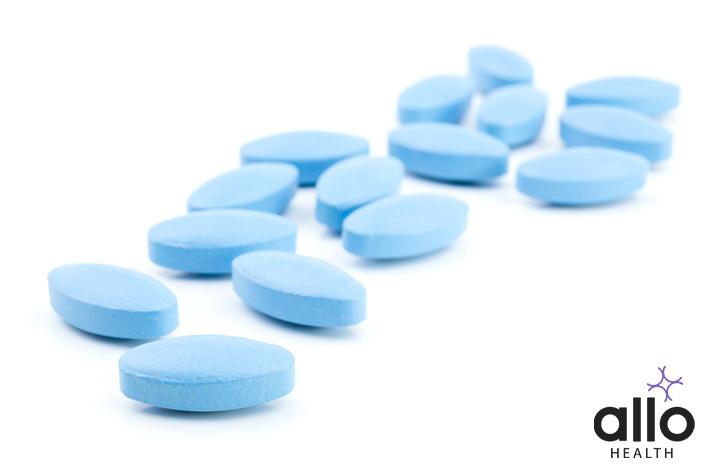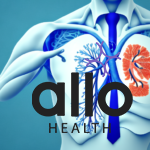Why Does Viagra Make My Nose Stuffy?

"The following blog article provides information about a drug or brand name drug and its potential effects or benefits. However, it is crucial to understand that this information is intended for general educational purposes only and should not be considered a substitute for professional medical consultation. It is highly recommended to consult with a qualified healthcare professional before making any decisions regarding medication, treatment, or healthcare management.
Book consultation
Individuals have unique medical conditions, and the information provided in this article may not be applicable to everyone. Only a qualified healthcare provider can evaluate your specific medical situation, taking into account your medical history, conducting appropriate tests, and providing personalized advice and recommendations. They are equipped to make informed decisions tailored to your individual needs.
It is crucial to emphasize that self-diagnosis, self-medication, or disregarding medical advice can have serious health consequences. This article may reference specific brand names or drugs for illustrative purposes. Mention of these names does not imply endorsement, recommendation, or guarantee of their efficacy or safety. The choice of medication should be based on discussions and individualized guidance from a healthcare professional who has a comprehensive understanding of your medical condition.
"Viagra is a popular medication used for improved erections in the treatment of erectile dysfunction. While it has been proven effective in helping men achieve and maintain an erection, it also comes with some common side effects. One of the most frequently reported side effects is nasal congestion, or a stuffy nose.
In this article, we will examine the link between Viagra and nasal congestion, and try to understand what causes stuffy nose.
What is Viagra and How Does It Work?
- Viagra is a prescription medication commonly used to provide relief from erectile dysfunction (ED) in men.
- It contains the active ingredient sildenafil citrate, which belongs to a class of drugs called phosphodiesterase type 5 (PDE5) inhibitors.
- When a man is sexually stimulated, Viagra helps increase blood flow to the penis, enabling him to achieve and maintain an erection.
- Viagra should be used under the guidance of a healthcare professional, as it may have contraindications or interactions with certain medications.
Mechanism of Action: The mechanism of action of Viagra (sildenafil citrate) involves its interaction with the enzyme phosphodiesterase type 5 (PDE5).
- Sexual Stimulation: When a man is sexually aroused or stimulated, the body releases nitric oxide (NO) in the erectile tissue of the penis.
- Nitric Oxide Release: Nitric oxide activates an enzyme called guanylate cyclase, leading to an increase in cyclic guanosine monophosphate (cGMP) levels.
- Smooth Muscle Relaxation: Elevated cGMP levels cause the smooth muscles in the erectile tissue of the penis to relax.
- Increased Blood Flow: The relaxation of smooth muscles allows blood vessels to dilate, increasing blood flow to the penis.
- Erection: The increased blood flow results in an erection by filling the spongy erectile tissues in the penis.
- PDE5 Inhibition by Viagra: PDE5 is an enzyme that breaks down cGMP, regulating the blood flow in the penis. Viagra works by inhibiting PDE5, preventing it from breaking down cGMP too quickly.
- Prolonged cGMP Action: By inhibiting PDE5, Viagra helps to maintain higher levels of cGMP, prolonging the vasodilation and enhancing the erectile response.
- Sustained Erection: With the prolonged action of cGMP, the smooth muscles remain relaxed, allowing for a sustained erection during sexual activity.
While Viagra enhances the natural physiological processes that lead to an erection, it doesn’t cause an erection on its own. Sexual arousal is still necessary for the medication to be effective.
Viagra Side Effects

While Viagra (sildenafil citrate) is generally well-tolerated, like any medication, it may cause side effects. Not everyone will experience these side effects, and some individuals may experience effects that are not listed. If you’re considering or using Viagra, it’s crucial to consult with a healthcare professional for personalised advice.
Mild Side Effects:
- Headache
- Flushing (warmth, redness, or tingling sensation in the face or chest)
- Indigestion or upset stomach
- Nasal congestion
- Dizziness or lightheadedness
- Muscle pain
- Chest pain
Less Common Side Effects:
- Blurred vision or double vision
- Changes in color vision or other temporary vision changes
- Sensitivity to light
- Sleep disturbances
Uncommon Side Effects (Serious):
- Priapism: Painful erection lasting more than four hours. This requires immediate medical attention to prevent long-term damage, hence a visit to the nearest emergency should be prioritised.
- Sudden hearing loss or changes in hearing
- Loss of vision
Allergic Reactions:
Allergic reactions to sildenafil are rare but can occur. Seek medical attention from a health care professional if you experience symptoms such as rash, itching/swelling (especially of the face/tongue/throat), severe dizziness, or difficulty breathing.
Interactions and Precautions:
Viagra may interact with certain medications or medical conditions. It’s important to inform your healthcare provider of all the medications you are taking and any pre-existing health conditions.
The absence of warnings for a given drug does not indicate that the drug combination is safe, effective, or appropriate for all patients or all specific uses.
It’s crucial to use Viagra as prescribed by a healthcare professional and to seek medical attention if you experience severe or persistent side effects. This list is not exhaustive. Read more about the side effects of Viagra here.
Why Does Viagra Cause Stuffy Nose?

The common side effect of a stuffy or congested nose (nasal congestion) associated with Viagra use is primarily due to its vasodilatory effects.
- Phosphodiesterase Type 5 (PDE5) Inhibition: Viagra, or sildenafil citrate, is a phosphodiesterase type 5 (PDE5) inhibitor. PDE5 is an enzyme that plays a role in the regulation of cyclic guanosine monophosphate (cGMP). By inhibiting PDE5, Viagra prolongs the action of cGMP, which is involved in smooth muscle relaxation and vasodilation.
- Vasodilation: The primary mechanism of action of Viagra is the relaxation of smooth muscle cells in the blood vessels, leading to vasodilation. This effect is particularly prominent in the corpus cavernosum of the penis, where increased blood flow helps achieve and maintain an erection.
- Generalised Vasodilation: While the vasodilatory effect is essential for its intended purpose in treating erectile dysfunction, Viagra’s impact is not limited to the genital area. The medication can cause a more generalised vasodilation, affecting blood vessels throughout the body.
- Nasal Blood Vessels: The blood vessels in the nasal mucosa are also subject to vasodilation. As the blood vessels in the nasal passages expand, it can lead to increased blood flow and engorgement of the nasal tissues.
- Nasal Congestion: The engorgement of blood vessels in the nasal mucosa contributes to nasal congestion or a stuffy nose. This congestion is a result of increased blood volume and the narrowing of nasal passages.
Not everyone who takes Viagra will experience nasal congestion, and the severity of this side effect can vary among individuals. If nasal congestion becomes bothersome or persistent, individuals are advised to consult with their healthcare provider.
Managing Nasal Congestion
If you’re experiencing nasal congestion as a side effect of Viagra, there are several strategies you can consider to manage this symptom. These suggestions are general and may not be suitable for everyone. Always consult with your healthcare provider before making any changes.
- Stay Hydrated: Drink plenty of water to help thin mucus and keep the nasal passages moist. Hydration can help ease congestion and make it more comfortable.
- Use Saline Nasal Sprays: Saline nasal sprays can provide relief by moisturizing and soothing the nasal passages. They can also help clear mucus.
- Humidify the Air: Using a humidifier can add moisture to the air, preventing the nasal passages from drying out and reducing congestion. Be sure to clean the humidifier regularly to prevent mold growth.
- Over-the-Counter Decongestants: Over-the-counter decongestant nasal sprays or oral decongestants may be considered, but it’s essential to use them as directed and not for an extended period to avoid rebound congestion.
- Avoid Irritants: Steer clear of environmental irritants such as smoke or strong odors, as these can worsen nasal congestion.
- Positional Relief: Elevating your head while sleeping can help alleviate nasal congestion. This can be achieved by using an extra pillow or sleeping on a wedge-shaped pillow.
- Consider Allergies: Nasal congestion may be aggravated by allergies. If you suspect allergies, consult with your healthcare provider for appropriate management, which may include antihistamines.
- Consult with Your Healthcare Provider: If nasal congestion persists or becomes severe, it’s crucial to consult with your healthcare provider. They can assess your overall health and may adjust your medication or recommend alternative treatments.
It’s essential to remember that these suggestions are general and may not be suitable for everyone.
Key Takeaways
- Viagra is a brand-name drug used in the treatment for erectile dysfunction with a common side effect of nasal congestion.
- Viagra contains sildenafil citrate, a PDE5 inhibitor, increasing blood flow for erections.
- Common adverse effects of Viagra include headache, muscle aches, flushing, abnormal vision, mild vision changes, indigestion, loss of hearing and nasal congestion.
- The mechanism of action involves PDE5 inhibition, leading to prolonged cGMP levels for vasodilation.
- Nasal congestion is caused by general vasodilation, affecting blood vessels, including those in the nose.
- Managing nasal congestion includes staying hydrated, using saline sprays, and considering positional relief.
- Consultation with a licensed healthcare professional is crucial for personalised advice and adjusting medications if needed.
Frequently Asked Questions
Q: Does Viagra cause heart attacks?
A: While Viagra is generally safe for most men, individuals with pre-existing cardiovascular conditions should consult a healthcare provider as there’s a potential risk of cardiovascular events.
Q: Does Viagra cause a drop in blood pressure?
A: Yes, Viagra can cause a mild, sudden decrease in blood pressure, particularly when taken with nitrate medications. Caution is advised, especially in individuals with hypotension or on antihypertensive drugs.
Q: What are the drug interactions of Viagra?
A: Viagra may interact with nitrate medications and other blood pressure medications, leading to a sudden drop in blood pressure. Additionally, it can interact with alpha-blocker drugs, certain antimicrobial drugs, antifungals, and certain antibiotics. Viagra should not also be taken with recreational drugs or illicit drugs like amyl nitrate.
Q: Is priapism a medical emergency?
A: Yes, priapism, a prolonged and painful erection lasting more than four hours, is a medical emergency. Immediate medical attention is crucial to prevent potential long-term damage to the penis.
Q: What is the typical dose of Viagra for adult males?
A: The usual starting dose of Viagra for adult males is 50 mg, taken approximately one hour before sexual activity. Dosing may be adjusted based on individual response and tolerability, with a maximum recommended dose of 100 mg.
Q: Can people with heart disease take Viagra?
A: Individuals with heart disease should consult their healthcare provider before taking Viagra, as the medication can have cardiovascular effects. While it’s generally safe for many, caution is advised due to the potential risk of interactions and exacerbation of underlying heart conditions.
Q: Should I take Viagra after food?
A: Viagra can be taken with or without food, but taking it on an empty stomach may lead to faster onset of action. However, a high-fat meal delays absorption, so it’s advisable to follow the recommended instructions provided by your healthcare provider.
Q: Can Viagra cause permanent vision loss?
A: While rare, there have been reports of sudden vision loss associated with Viagra; it may cause permanent vision loss (Non-arteritic anterior ischemic optic neuropathy (NAION)- eye condition). Individuals should seek immediate medical attention if they experience any vision changes and consult their healthcare provider regarding the potential risks.
Q: What is generic sildenafil?
A: Generic sildenafil is the active ingredient in Viagra( brand-name medication), a phosphodiesterase type 5 (PDE5) inhibitor used to treat erectile dysfunction. It works by increasing blood flow to the penis, allowing for improved erectile function.
Q: What are other effective treatments for ED?
A: Other effective treatments for erectile dysfunction include medications like tadalafil (Cialis) and vardenafil (Levitra), as well as lifestyle changes, counseling, and vacuum erection devices. Consultation with a healthcare provider is essential to determine the most suitable option based on individual health and preferences.







































